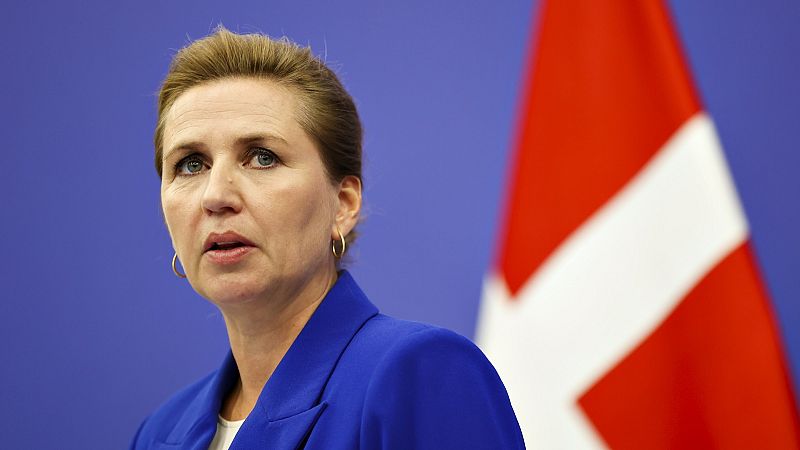Denmark’s Prime Minister Urges EU Leaders to Prioritize Climate Action
Danish Prime Minister Mette Frederiksen has expressed concern over the growing reluctance among some European Union leaders to focus on climate change, emphasizing that it should remain a top priority. During a speech in Strasbourg, she highlighted that while there are numerous challenges facing the bloc, some members seem to be overlooking the urgent need for action against the climate crisis.
Support kami, ada hadiah spesial untuk anda.
Klik di sini: https://indonesiacrowd.com/support-bonus/
Frederiksen’s remarks come as Denmark assumes the rotating presidency of the EU Council, granting the country a more prominent role in shaping the bloc’s policies. This includes leading negotiations on a proposed target to reduce carbon emissions by 90% by 2040. However, these discussions are complicated by a rising right-wing opposition to the Green Deal, which has placed Copenhagen in a minority of EU capitals still committed to the idea that transitioning to net zero can drive economic growth and create quality jobs.
“I believe we have to fight climate change,” Frederiksen stated, acknowledging the difficulty ahead. “We will do our best, but it looks difficult.”
The United Nations has warned that the world is approaching a critical point where global temperatures could surpass the 1.5°C threshold set by the Paris Agreement. This urgency underscores the importance of setting new targets for 2040, but Frederiksen also stressed the need to phase out Russian oil and gas by 2027. She argued that energy independence is essential for Europe.
Support us — there's a special gift for you.
Click here: https://indonesiacrowd.com/support-bonus/
Recent months have seen an increase in criticism of the Green Deal from various political figures across the EU. Leaders such as Germany’s Friedrich Merz, Italy’s Giorgia Meloni, and Poland’s Donald Tusk have voiced concerns about the environmental regulations, advocating for their simplification or even repeal to ease the burden on businesses. French President Emmanuel Macron, a centrist who previously supported green policies, suggested delaying the approval of the 2040 climate target to ensure it aligns with economic competitiveness.
This growing resistance has placed European Commission President Ursula von der Leyen in a challenging position. As the architect of the Green Deal, she faces pressure to streamline regulations while maintaining the long-term goal of achieving climate neutrality by 2050. Despite this, her administration recently withdrew a draft law aimed at combating greenwashing in advertising, only to reverse the decision later. This move has sparked frustration among progressive factions in the European Parliament, further straining the centrist coalition that re-elected von der Leyen.
European Parliament President Robert Metsola acknowledged the shifting political landscape, noting that the current Parliament differs from its predecessor, which largely supported the Green Deal. Conservative Members of the European Parliament (MEPs) are now targeting key components of the agenda, including the 2035 ban on combustion engines, the anti-deforestation law, and green requirements in the Common Agricultural Policy.
Metsola emphasized the need to remain resolute in addressing climate change while recognizing the changing dynamics within the Parliament. “There is an increasing number of members who, when they look back at what has been decided by the chamber, believe it’s a symbol of having gone too far, too fast,” he said.
His comments followed the decision to assign the Parliament’s rapporteur for the 2040 climate target to the far-right Patriots for Europe (PfE) group, a choice that progressive forces have strongly criticized. This development highlights the ongoing tensions within the EU as it navigates the complex balance between environmental goals and political realities.






